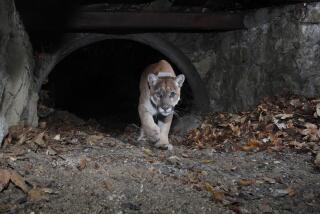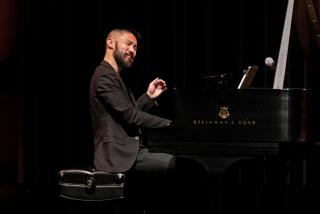An enriching tribute to a tragic life
- Share via
Pianist Bill Cunliffe and the Pasadena Jazz Institute came up with an unusually appealing presentation Saturday night at Travis Auditorium on Fuller Theological Seminary’s Pasadena campus. The concert, a tribute to pianist Bud Powell, was called “Glass Enclosure,” the title of one of the bebop artist’s thorniest works.
But Cunliffe, who released a Powell tribute album titled “Bill Plays Bud” in 1998, had much more to offer than his renderings of music either written by or associated with Powell. Working with bassist Darek Oles and drummer Joe LaBarbera, he presented what was, in effect, a seminar with musical illustrations.
Cunliffe was well-prepared for the task. Frequently referring to obviously detailed notes, he offered an overview of Powell’s personal and professional life between musical segments. Given the source material, that made for a compelling presentation on its own.
Powell’s tragic history, darkened by episodes of mental instability and drug addiction, was the primary inspiration for the film “ ‘Round Midnight.” And it made for a harrowing tale, even in Cunliffe’s relatively truncated description.
By combining Powell’s real-world life story with an overview of his musical inventions, Cunliffe underscored the enigmatic qualities of artistic creativity, of the remarkable manner in which extraordinary beauty can pass unfiltered through the most troubled consciousness.
In the musical passages, Cunliffe -- an eclectic stylist who is as convincing with ragtime as he is with bebop -- romped through such Powell classics as “Un Poco Loco,” “Hallucinations,” “Tempus Fugit” and “Sure Thing.” He closed with a climactic offering of “Glass Enclosure,” a piece that represented Powell’s largely unfulfilled ambitions to deal with more expansive, classically oriented musical elements (but with far less success than he achieved in his straight-ahead jazz offerings).
Capturing the essence of the Powell style -- occasionally paraphrasing his actual solos -- Cunliffe added his own improvisatory touches as well. He was especially effective in the supercharged up-tempos, briskly knocking out one quick-fingered phrase after another.
Cunliffe’s Powell presentation was an intriguingly new and informative jazz experience -- jazz edutainment? -- and he would do well to continue to refine it and offer it to audiences elsewhere.
More to Read
The biggest entertainment stories
Get our big stories about Hollywood, film, television, music, arts, culture and more right in your inbox as soon as they publish.
You may occasionally receive promotional content from the Los Angeles Times.










